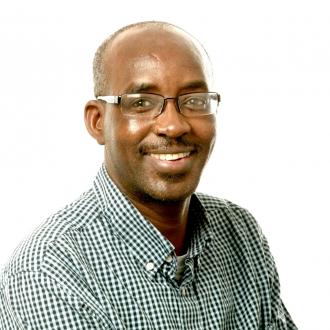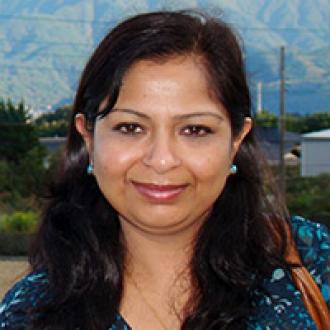- Postgraduate
Master of Public Health MPH
Overview
Do you care about promoting and protecting population health? Do you want to help individuals and communities improve their health and well-being? This course aims to give you the knowledge to help you understand the impact that financial, social and environmental circumstances have on the health of people.
We welcome students from a variety of vocational and professional backgrounds, and you will study in a supportive, enjoyable learning environment.
This course will help you develop your skills in critical analysis and synthesis, information and evidence retrieval, ability to read and absorb information from a wide range of sources, leadership and creativity to tackle public health challenges at global and local levels.
It focuses on key public health disciplines from healthy public policy, epidemiology, research methods and methodologies and global public health.
There is a particular focus on the health of individuals, families and communities. This focus is given an effective foundation by a team of lecturers who have experience of working in the UK and international public health.

Select your desired study option, then pick a start date to see relevant course information:
Start date:
If your desired start date is not available, try selecting a different study option.
Why study Master of Public Health with us?


What our students say…
Excellent lectures with great dedication and organisational skills. I have learnt a lot from the Master of Public Health course.




Course detail & modules
Throughout the Master of Public Health course, you will be exposed to the issues that affect public health.
You will work to identify the risk factors such as obesity, smoking and disease, which affect people's health and learn how to minimise these risks.
You will also gain the essential knowledge and skills to plan, deliver and evaluate health promotion interventions helping ensure everyone has a chance to live long, fulfilling and healthy lives.
Importantly, your studies will help to strengthen your management and leadership skills, which are essential for working in a public health role.
You can expect to study with students from a range of work backgrounds, including, but not limited to:
- people working in public and environmental health
- people working with local authorities
- sexual health workers
- general nurses
- mental health nurses
- midwives
- people in the health and fitness industry
- voluntary workers
- youth workers.
The course content has been developed with professional relevance in mind, and you will learn from highly skilled staff, many of whom conduct advanced research in their specialist areas. This will ensure that your period of study is both challenging and rewarding.
Compulsory modules
-
Public Health and Health Systems
This module introduces the historical and conceptual foundations of public health systems and policy.
- You will review different health systems and public health models to
- understand their functions, grounding theories, and concepts about:
- service delivery
- health workforce
- health information systems
- access to essential medicines
- financing
- leadership
- collective actions of society to enhance population health.
The module uses local, national, and global perspectives to consider the political dimensions of public health and the strategic use of resources such as housing, economic globalisation and income distribution, and community empowerment on influencing lifestyle choices and improving population health.
-
Global Public Health Challenges
This module introduces key challenges facing global public health systems and practitioners. It prepares you to critique and understand public health concepts in the context of complex socio-political developments globally. It emphasises the importance of developing a critical analysis to understand how globalisation process and its drivers influence public health systems’ ability to mitigate the emergence and spread of risk factors and diseases that impact population health.
You will be able to critically analyse global health systems, and how alliances and partnerships come together to develop and manage strong public health systems.
-
Epidemiology and Biostatistics
This module enables you to appreciate how epidemiology contributes to the identification of public health issues at a population level locally, nationally and globally. It complements the Research Methods for Public Health module by giving you the opportunity to gain an understanding of how to locate and use health data sources, and the relative strengths and weaknesses of the different epidemiological study designs.
You will develop skills for critically appraising published research and interpreting basic epidemiologic and demographic, descriptive and inferential data and statistical approaches to analysing health outcomes.
-
Research Methods for Public Health
This module aims to develop your knowledge, skills, and ability to undertake research. You will develop key competencies for initiating (and independently carrying out) high-quality evidence-based research that generates solutions to problems that impact population health.
You will be introduced to research philosophies, paradigms and ethics and a range of methodological elements and techniques for carrying out primary research including the implementation of quantitative and qualitative research. This module complements all other MPH modules.
-
Leadership and Management for Public Health
Knowledge and skills in leadership and management are a core requirements for improving population health. This module focuses on helping you to understand the theory and practice of effective leadership and management of public health services, programmes and projects. It examines and unpicks concepts and issues in leadership and management practices and strategies used within public health systems to improve service delivery, and implement change that achieves sustainable service quality in the context of addressing population health needs.
The module uses real-life scenarios and recorded narrations by practitioners to analyse classic leadership themes and interpret the characteristics of effective leaders; helping students as future leaders and managers to identify and adopt different leadership approaches for handling the challenges facing public health professionals in influencing societies and populations for health improvement.
The module will challenge you to think of innovative ideas to adopt when leading within complex and dynamic public health settings.
-
Health Policy and Principles
The aim of this module is to develop your skills in designing, implementing and evaluating health policy interventions.
The module will help you to become a critical thinker who is able to analyse the effectiveness of the health policy process including translation of evidence-informed policy into practice.
-
MPH Dissertation
The module aims to provide you with the opportunity to independently develop a business case for a public health improvement initiative through secondary research. You will have the opportunity to apply the knowledge and skills acquired from the different course modules to develop a business case for improving the effectiveness, efficiency, or quality of specific public health, healthcare or social care project, programme, or service.
The dissertation prepares you for translating research-informed recommendations into feasible public health actions that contribute to improving the health of an affected group or population at the local or national levels.
Optional modules
-
Nutrition in Public Health
This module focuses on your understanding of the role of food and nutrition and related socio-economic and political factors in influencing population health improvement.
You will explore the different aspects of nutrition in public health including nutrition across the life course, evaluating population food behaviours, the psychology of food, prevention of food poisoning, and analysis of the global nutritional disorders, undernutrition (such as kwashiorkor and marasmus), and overnutrition (such as obesity, diabetes, and food-related cancers).
-
Gender, Health, and Development
This module builds on your knowledge and understanding of gender, as an important consideration for health and development. Through the application of theoretical perspectives, the module guides you in analysing and critiquing how social norms, cultural values and power structures impact the health, lives, and opportunities available to individuals from an increasingly diverse range of genders in contemporary society.
It examines feminist, masculinity and queer theories and emphasises the importance of recognising the impact of gender relations on individual and collective global public health. You will be able to explore the historical developments of the movements that vocalise and campaign for gender equity, while at the same time also examining how gender-related systemic norms, discrimination, and violence create barriers to equity in health, development, and human rights.
-
Public Health Economics
The aim of the module is to enable you to develop an understanding of the role health economics plays within public health practice. It introduces you to the key concepts and principles in health economics and their application in public health practice.
You will explore the role of markets and their influence on consumer demand and provider supply of health care and services. You will also develop skills for using economic evaluation techniques in assessing the usefulness of different interventions in public health contexts.
-
Ageing Populations and Public Health
The module provides you with an understanding of how population ageing is a growing global public health issue. It considers how demographic changes in populations, whether in high, middle, or low-income countries influence the determinants of health. Youwill explore the public health implications of ageing on housing, transport, the economy, the environment, culture, and the differing response to the needs of an ageing population in different country contexts.
-
Environmental Health
This module introduces you to how the environment (ecological systems), human activities (cultural, social, and economic) and human health (physical and mental) interact with each other in a multidimensional way.
It focuses on your understanding of the importance of regular and systemic risk assessment, management, and communication in negotiating and dealing with environmental hazards as they, directly and indirectly, affect population health.
-
Addiction Treatment Interventions
This module will give you an overview of the assessment tools and treatment interventions used in substance misuse. You will have the opportunity to meet professionals who work in the field and to listen to the experience of people who successfully recovered from addition.
-
Dual Diagnosis: Substance Use and Mental Health
This module aims to develop your knowledge and understanding in the area of dual diagnosis of mental health and substance use. The aim is to equip you with the necessary knowledge, understanding and skills to deal with clients with complex needs.
Sessions will include:
- risk assessment
- risk management
- care planning
- record keeping.
A range of professionals working in the field and service users will contribute to the module.
Entry requirements
You need:
- an honours degree (2:2 or above) in a relevant subject
- a supporting statement
A clinical background is not necessary and we welcome applicants with diverse backgrounds in the arts, humanities or sciences. Any work experience related to public health or knowledge of the public health system is desirable.
We look for students who show enthusiasm and a passion for the subject through previous study or professional experience.
If you have any questions about the relevance of your qualifications or experience please contact the course leader shown in the teaching staff.
You need to meet our English language requirement of 6.5 overall score for IELTS, with a minimum of 5.5 for each of the 4 individual components (Reading, Writing, Speaking and Listening). Visit our English language requirements page for information on other English language tests we accept.
You also need academic qualifications at the same level as UK applicants. In some countries where teaching is in English, we may accept local qualifications. Check for local equivalents.
We offer pre-sessional English language courses if you do not meet these requirements. Find out more about our English Language courses.
We look for students who show enthusiasm and a passion for the subject through previous study or professional experience.
If you have any questions about the relevance of your qualifications or experience please contact the course leader shown in the teaching staff.
Fees & funding
Please note:
- Fees for the 2026/27 academic year and onwards may be subject to Government regulation and change.
- Tuition fees are charged for each year of your course. If your course runs for two years or more, you will need to pay the fee for each academic year at the start of that year.
- If your course runs for less than two years, the cost above is for your full course and you will need to pay the full fee upfront.
- If no fee is shown above then the fees for this course are not available yet. Please check again later for updates.
Funding your studies
Grants for home students
Home students studying this course may be eligible to receive a non-repayable grant of at least £5,000 each year. Further information is available on the NHS Learning Support Fund Website.
Postgraduate loan
You may be eligible to apply for a postgraduate loan to cover your course and living costs. Additional funding is available to some types of students, such as disabled students or those with dependants.
Awards for nursing, midwifery and healthcare students are also on offer.
For more information regarding funding, including conditions and eligibility, please see the link below.
Please note:
- Fees for the 2026/27 academic year and onwards may be subject to Government regulation and change.
- Tuition fees are charged for each year of your course. If your course runs for two years or more, you will need to pay the fee for each academic year at the start of that year.
- If your course runs for less than two years, the cost above is for your full course and you will need to pay the full fee upfront.
- If no fee is shown above then the fees for this course are not available yet. Please check again later for updates.
International students - funding your studies
We offer scholarships for international students including International Ambassador Scholarships.
Further information about funding and financial support for international students is available from the UK Council for International Student Affairs.
Teaching staff

Dr Oliver Mudyarabikwa
Dr Oliver Mudyarabikwa’s subject areas include Public Health Policy; Global Health Leadership; Financing; Health Economics; and Operational Research. He is interested in comparative health systems analysis, health equity improvement; evidence-based health policy, health economics application in planning and financing interventions, ethnic minority healthcare, public-private partnerships and health human resource productivity.
Dr Oliver Mudyarabikwa has over 30 years’ experience of undergraduate and postgraduate teaching. He also had senior leadership roles in public health administration, research, and short-term consultancies for the WHO, World Bank and UNICEF in Africa.
Dr Oliver Mudyarabikwa’s subject areas include Public Health Policy; Global Health Leadership; Financing; Health Economics; and Operational Research. He is interested in comparative health systems analysis, health equity improvement; evidence-based health policy, health economics application in planning and financing interventions, ethnic minority healthcare, public-private partnerships and health human resource productivity.
Dr Oliver Mudyarabikwa has over 30 years’ experience of undergraduate and postgraduate teaching. He also had senior leadership roles in public health administration, research, and short-term consultancies for the WHO, World Bank and UNICEF in Africa.
Study & career progression
On successful completion of your Master of Public Health you could work in:
- healthcare services (including NHS)
- local authorities
- government agencies (including Public Health England)
- the voluntary sector (including health charities)
- non-government organisations (NGOs)
You could also pursue career opportunities in areas as diverse as:
- urban planning and development
- marketing and media work
- business management
- environmental and public health consulting
- health education training in the UK and internationally
We offer a wide range of Continuing Professional Development (CPD) courses that you may want to explore.
Alternatively, you could follow the increasing trend of Masters students from the College of Nursing, Midwifery and Healthcare who have successfully applied to take a PhD. Find out more about our research activities and support for PhD and Professional Doctorate students.
How to apply

You can apply online at any time by following the link below.
Our application form will ask you for some information about:
- what you want to study
- your previous qualifications or experience
- your references
- how we can contact you.
Want to ask us a question first? We would love to hear from you. Contact us free on:
- 0800 036 8888
- courses@uwl.ac.uk
Apply for this course
Next steps after making your application
We aim to make a decision on your application as quickly as we can. If we need any more information about your qualifications, we will be in touch.
In the meantime, come and visit us and find out more about what studying at UWL is like. Sign up for an open day or join a campus tour.
Visit us and see for yourself
Talk to our tutors and find out about our courses and facilities at our next open day or join a campus tour.
We're here to help
Any questions about a course or studying at UWL? We're here to help - call us on 0800 036 8888 (option 2, Monday – Friday 10am-4pm) or email us on courses@uwl.ac.uk.
Our postgraduate prospectus
All of our courses in one place - download now or order a hard copy.

You can apply online at any time by following the link below.
Our application form will ask you for some information about:
- what you want to study
- your previous qualifications or experience
- your references
- how we can contact you.
Want to ask us a question first? We would love to hear from you. Contact us free on:
- 0800 036 8888
- courses@uwl.ac.uk
Apply for this course
Next steps after making your application
We aim to make a decision on your application as quickly as we can. If we need any more information about your qualifications, we will be in touch.
In the meantime, come and visit us and find out more about what studying at UWL is like. Sign up for an open day or join a campus tour.
Visit us and see for yourself
Talk to our tutors and find out about our courses and facilities at our next open day or join a campus tour.
We're here to help
Any questions about a course or studying at UWL? We're here to help - call us on 0800 036 8888 (option 2, Monday – Friday 10am-4pm) or email us on courses@uwl.ac.uk.
Our postgraduate prospectus
All of our courses in one place - download now or order a hard copy.

You can apply online at any time by following the link below.
Our application form will ask you for some information about:
- what you want to study
- your previous qualifications or experience
- your references
- how we can contact you.
Want to ask us a question first? We would love to hear from you. Contact us free on:
- 0800 036 8888
- courses@uwl.ac.uk
Apply for this course
Next steps after making your application
We aim to make a decision on your application as quickly as we can. If we need any more information about your qualifications, we will be in touch.
In the meantime, come and visit us and find out more about what studying at UWL is like. Sign up for an open day or join a campus tour.
Visit us and see for yourself
Talk to our tutors and find out about our courses and facilities at our next open day or join a campus tour.
We're here to help
Any questions about a course or studying at UWL? We're here to help - call us on 0800 036 8888 (option 2, Monday – Friday 10am-4pm) or email us on courses@uwl.ac.uk.
Our postgraduate prospectus
All of our courses in one place - download now or order a hard copy.

You can apply online at any time by following the link below.
Our application form will ask you for some information about:
- what you want to study
- your previous qualifications or experience
- your references
- how we can contact you.
Want to ask us a question first? We would love to hear from you. Contact us free on:
- 0800 036 8888
- courses@uwl.ac.uk
Apply for this course
Next steps after making your application
We aim to make a decision on your application as quickly as we can. If we need any more information about your qualifications, we will be in touch.
In the meantime, come and visit us and find out more about what studying at UWL is like. Sign up for an open day or join a campus tour.
Visit us and see for yourself
Talk to our tutors and find out about our courses and facilities at our next open day or join a campus tour.
We're here to help
Any questions about a course or studying at UWL? We're here to help - call us on 0800 036 8888 (option 2, Monday – Friday 10am-4pm) or email us on courses@uwl.ac.uk.
Our postgraduate prospectus
All of our courses in one place - download now or order a hard copy.

You can apply online at any time by following the link below.
Our application form will ask you for some information about:
- what you want to study
- your previous qualifications or experience
- your references
- your visa (if required)
- how we can contact you.
Want to ask us a question first? Our dedicated international students’ team would love to hear from you.
- email international@uwl.ac.uk to submit a question
Apply for this course
Next steps after making your application
We aim to make a decision on your application as quickly as we can. If we need any more information about your qualifications, we will be in touch.
In the meantime, come and visit us and find out more about what studying at UWL is like. Sign up for an open day or join a campus tour.
Visit us and see for yourself
Talk to our tutors and find out about our courses and facilities at our next open day or join a campus tour.
We're here to help
Any questions about a course or studying at UWL? We're here to help - call us on 0800 036 8888 (option 2, Monday – Friday 10am-4pm) or email us on courses@uwl.ac.uk.
Our postgraduate prospectus
All of our courses in one place - download now or order a hard copy.

You can apply online at any time by following the link below.
Our application form will ask you for some information about:
- what you want to study
- your previous qualifications or experience
- your references
- your visa (if required)
- how we can contact you.
Want to ask us a question first? Our dedicated international students’ team would love to hear from you.
- email international@uwl.ac.uk to submit a question
Apply for this course
Next steps after making your application
We aim to make a decision on your application as quickly as we can. If we need any more information about your qualifications, we will be in touch.
In the meantime, come and visit us and find out more about what studying at UWL is like. Sign up for an open day or join a campus tour.
Visit us and see for yourself
Talk to our tutors and find out about our courses and facilities at our next open day or join a campus tour.
We're here to help
Any questions about a course or studying at UWL? We're here to help - call us on 0800 036 8888 (option 2, Monday – Friday 10am-4pm) or email us on courses@uwl.ac.uk.
Our postgraduate prospectus
All of our courses in one place - download now or order a hard copy.
Search for courses
Student life at UWL
Important notes for applicants
Disclaimer
*Modern universities - defined as higher education institutions that were granted university status in, and subsequent to, 1992.
**The National Student Survey 2023 and 2024 - Average of answers to all questions by registered student population. Excludes specialist institutions.
Testimonials - our students or former students provided all of our testimonials - often a student from the course but sometimes another student. For example, the testimonial often comes from another UWL student when the course is new.
Optional modules - where optional modules are offered they will run subject to staff availability and viable student numbers opting to take the module.
Videos - all videos on our course pages were accurate at the time of filming. In some cases a new Course Leader has joined the University since the video was filmed.
Availability of placements - if you choose a course with placement/internship route we would like to advise you that if a placement/internship opportunity does not arise when you are expected to undertake the placement then the University will automatically transfer you to the non-internship route, this is to ensure you are still successful in being awarded a degree.












